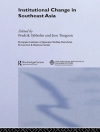‘ I especially like the depth and breadth of the book and the willingness to address the complexity of conducting quality needs assessment. It is a book that students will continue to use as they move into the professional world for years to come.’
—Ellen Darden, Concord University
This book takes the reader through the process of getting results utilized and then evaluating the needs assessment itself. The authors illuminate the pitfalls to avoid along the way. The text also explains where the techniques best fit into making utilization a reality.
Although this book can be used in a stand-alone fashion, it is part of the Needs Assessment KIT— five interrelated and sequenced books that take the reader through the needs assessment process (ISBN: 978-0-7619-2595-8).
Зміст
Preface
Acknowledgments
About the Authors
1. Post Assessment: Mapping the Road Less Traveled
2. The Nuts and Bolts of Post Assessment: Gearing Up for the Journey
3. The Action Plan: Collaborating for Change
4. Positive Approaches to Conflict: Weathering Interpersonal Storms
5. Individual and Organizational Roadblocks: Responding to Unexpected Challenges
6. Evaluating the Entire Needs Assessment: Learning From the Expedition
Epilogue
References
Index
Про автора
Jean A. King is a professor in the Department of Organizational Leadership, Policy, and Development at the University of Minnesota. She holds an M.S. and Ph.D. from Cornell University and, prior to her graduate study, taught middle school English in upstate New York before moving to New Orleans, LA where she was on the faculty at Tulane University. In 1989 she moved upriver to the University of Minnesota as the founding director of the Center for Applied Research and Educational Improvement (CAREI) in the College of Education and Human Development, a position she held for four years before working collaboratively to revitalize program evaluation instruction in the College. King founded the Minnesota Evaluation Studies Institute (MESI) in1996 and currently serves as its director. With over thirty years’ experience teaching and conducting evaluations, Professor King has received numerous awards for her work, including the Myrdal Award for Evaluation Practice and the Ingle Award for Extraordinary Service from the American Evaluation Association, three teaching awards, and three community service awards. A sought-after presenter and long-time writer on evaluation, she is the author of numerous articles, chapters, and reviews and retains an abiding interest in participatory evaluation and evaluation capacity building.












